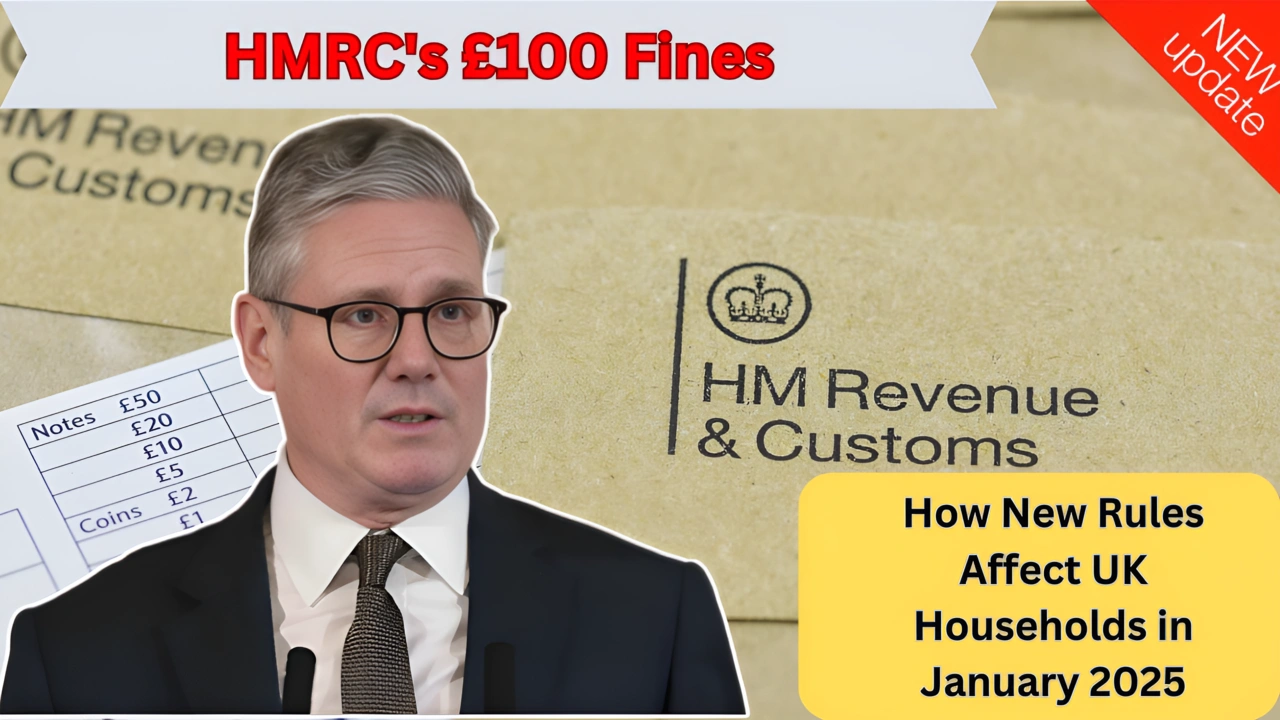HMRC’s £100 Fines: HMRC is issuing a strong warning to UK taxpayers as the deadline for submitting Self Assessment tax returns looms. If you haven’t filed or paid your tax return for the 2023–2024 tax year by January 31, 2025, you could be hit with a £100 fine. With just over a month left, it’s important to get your tax affairs in order.
Key Deadlines and Penalties
HMRC has reminded individuals that the Self Assessment tax return for the previous year must be filed online by midnight on January 31. Missing this deadline will result in an automatic £100 late filing fine. And the penalties don’t stop there—if your return is even more delayed, the fines could increase. Late payments of taxes will also incur additional interest.
Can You Appeal the Fine?
While it’s always best to meet the deadline, HMRC does allow for penalties to be appealed if you have a “reasonable excuse” for missing it. Acceptable excuses could include personal circumstances like the death of a close family member, serious illness, unexpected hospital stays, or even issues like computer or software failure. However, keep in mind that simple mistakes like a failed payment or misunderstanding your tax obligations won’t be accepted as a valid excuse.
When Do You Need to File?
You’ll need to file a Self Assessment tax return if, in the tax year from April 6, 2023, to April 5, 2024, you:
- Were self-employed as a sole trader and earned more than £1,000
- Were a partner in a business partnership
- Had taxable income above £150,000
- Paid Capital Gains Tax on the sale of valuable items
- Received High Income Child Benefit Charges
- Have untaxed income (e.g., from property rentals, savings, dividends, or tips)
If any of these apply to you, be sure to file your return by the end of January to avoid penalties.
Payment Options for Struggling Taxpayers
If you owe money but are unable to pay the full amount by the deadline, don’t panic. HMRC offers a ‘Time to Pay’ service that lets you spread your tax payments over time. If you owe less than £30,000, you can apply for this option online without contacting HMRC. For those owing more than £30,000, you’ll need to contact the tax authority directly to make arrangements.
However, remember that you must submit your tax return before you can set up a payment plan. Myrtle Lloyd, HMRC’s Director General for Customer Services, reassured taxpayers that there is support available for those who need assistance. “We’re here to help customers get their tax right,” she said, adding that the payment plan is designed to offer flexibility, with repayment periods of up to 12 months.



